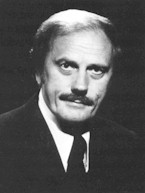Hobart Freeman
Hobart E. Freeman (1920–1984) was a theological scholar, author, and preacher known for his influence on the Charismatic Movement within Christianity, particularly within the Faith Movement. His teachings emphasized faith healing, prosperity theology, and the believer's authority in Christ. Freeman founded the Faith Assembly church in Indiana, which became controversial due to its stance on medical care, leading to legal and media scrutiny.
Biography[edit | edit source]
Hobart Freeman was born in 1920. He pursued higher education in theology, earning degrees that led him to a career in teaching and preaching. Initially, he was associated with traditional evangelical denominations, but his theological perspective shifted significantly in the later years of his life. This shift was characterized by a deeper embrace of charismatic teachings, particularly those related to faith healing and prosperity.
In the 1960s and 1970s, Freeman's ministry gained prominence. He became a leading voice in the Faith Movement, advocating for a literal interpretation of the Bible's promises of healing and prosperity for believers. His teachings encouraged followers to exercise faith for physical healing and to reject traditional medical intervention, relying instead on divine intervention for healing.
Faith Assembly[edit | edit source]
Freeman founded Faith Assembly, a congregation that grew significantly under his leadership. The church's teachings on faith healing became a central aspect of its identity. Members were encouraged to seek healing through prayer and faith, often foregoing conventional medical treatment. This stance led to controversy, especially as reports emerged of members, including children, dying from treatable conditions due to the rejection of medical care.
Controversy and Legal Issues[edit | edit source]
The practices of Faith Assembly and Freeman's teachings attracted attention from both the media and legal authorities. Several cases involving the deaths of church members, particularly children, who had not received medical treatment due to their families' adherence to Freeman's teachings, led to public outcry and legal challenges. Freeman and the church faced criticism and were accused of contributing to neglect and preventable deaths.
Theological Contributions and Criticisms[edit | edit source]
Freeman authored several books and articles outlining his theological views. His work contributed significantly to the Faith Movement, influencing many within the charismatic and Pentecostal branches of Christianity. However, his teachings on faith healing and the rejection of medical treatment have been widely criticized by theologians, medical professionals, and the public. Critics argue that his interpretation of scripture was flawed and that his stance on medical care was dangerous and irresponsible.
Legacy[edit | edit source]
Hobart Freeman's impact on the Charismatic Movement and the broader Christian community remains a subject of debate. While some hail his teachings on faith and the believer's authority as transformative, others view his legacy through the lens of the controversies and tragedies associated with his ministry. Following Freeman's death in 1984, Faith Assembly's influence waned, but the debates around faith healing, religious freedom, and the responsibilities of faith leaders continue.
Transform your life with W8MD's budget GLP1 injections from $125
W8MD offers a medical weight loss program NYC and a clinic to lose weight in Philadelphia. Our W8MD's physician supervised medical weight loss centers in NYC provides expert medical guidance, and offers telemedicine options for convenience.
Why choose W8MD?
- Comprehensive care with FDA-approved weight loss medications including:
- loss injections in NYC both generic and brand names:
- weight loss medications including Phentermine, Qsymia, Diethylpropion etc.
- Accept most insurances for visits or discounted self pay cost.
- Generic weight loss injections starting from just $125.00 for the starting dose
- In person weight loss NYC and telemedicine medical weight loss options in New York city available
- Budget GLP1 weight loss injections in NYC starting from $125.00 biweekly with insurance!
Book Your Appointment
Start your NYC weight loss journey today at our NYC medical weight loss, and Philadelphia medical weight loss Call (718)946-5500 for NY and 215 676 2334 for PA
Search WikiMD
Ad.Tired of being Overweight? Try W8MD's NYC physician weight loss.
Semaglutide (Ozempic / Wegovy and Tirzepatide (Mounjaro / Zepbound) available. Call 718 946 5500.
Advertise on WikiMD
|
WikiMD's Wellness Encyclopedia |
| Let Food Be Thy Medicine Medicine Thy Food - Hippocrates |
Translate this page: - East Asian
中文,
日本,
한국어,
South Asian
हिन्दी,
தமிழ்,
తెలుగు,
Urdu,
ಕನ್ನಡ,
Southeast Asian
Indonesian,
Vietnamese,
Thai,
မြန်မာဘာသာ,
বাংলা
European
español,
Deutsch,
français,
Greek,
português do Brasil,
polski,
română,
русский,
Nederlands,
norsk,
svenska,
suomi,
Italian
Middle Eastern & African
عربى,
Turkish,
Persian,
Hebrew,
Afrikaans,
isiZulu,
Kiswahili,
Other
Bulgarian,
Hungarian,
Czech,
Swedish,
മലയാളം,
मराठी,
ਪੰਜਾਬੀ,
ગુજરાતી,
Portuguese,
Ukrainian
Medical Disclaimer: WikiMD is not a substitute for professional medical advice. The information on WikiMD is provided as an information resource only, may be incorrect, outdated or misleading, and is not to be used or relied on for any diagnostic or treatment purposes. Please consult your health care provider before making any healthcare decisions or for guidance about a specific medical condition. WikiMD expressly disclaims responsibility, and shall have no liability, for any damages, loss, injury, or liability whatsoever suffered as a result of your reliance on the information contained in this site. By visiting this site you agree to the foregoing terms and conditions, which may from time to time be changed or supplemented by WikiMD. If you do not agree to the foregoing terms and conditions, you should not enter or use this site. See full disclaimer.
Credits:Most images are courtesy of Wikimedia commons, and templates, categories Wikipedia, licensed under CC BY SA or similar.
Contributors: Prab R. Tumpati, MD



